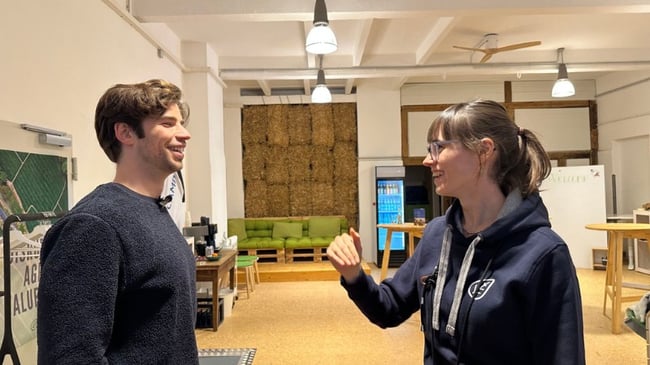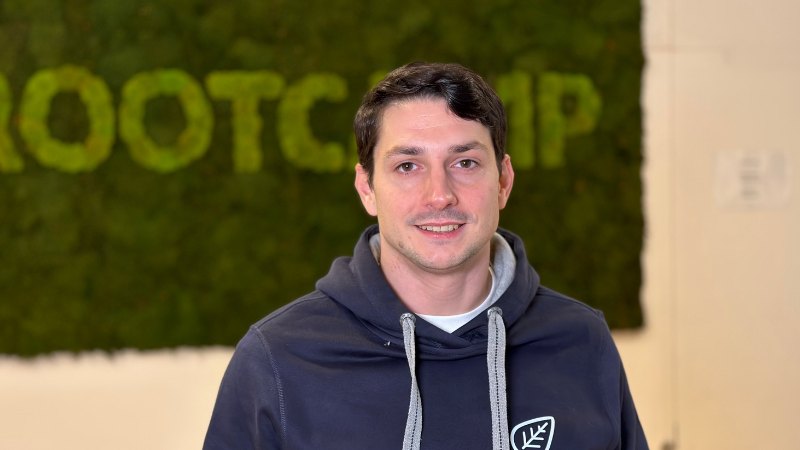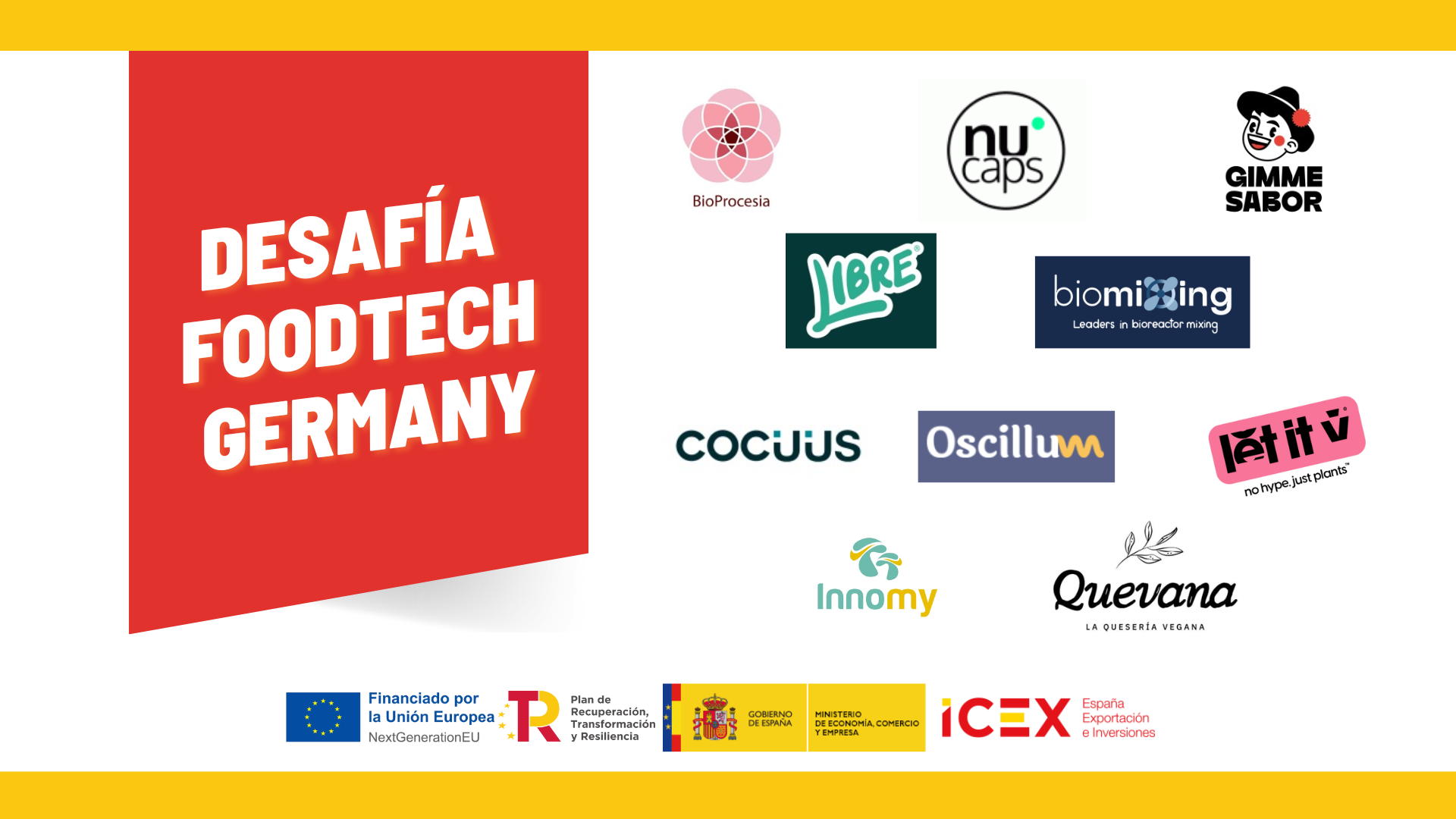Verdancy is a spin-off from the Schwaneberg Group at RWTH Aachen University and DWI – Leibniz Institute for Interactive Materials. The startup from RootCamp Batch#5 is committed to enhance plant protection in response to our dynamic biodiversity loss. Central to their mission is the advancement of environmentally friendly and highly efficient methods to promote plant health. We spoke with founder Nikola Mijailovic about how Verdancy is reshaping pesticide delivery, ensuring effective crop protection while addressing environmental challenges in agriculture.
How would you describe the core mission and activities of your startup?
Verdancy is on a mission to enable the protection and nutrition of crops in the future. Our vision involves integrating the technology we've developed as the backbone of the next generation of plant health products. To understand what we've developed precisely, readers first need to grasp this basic concept: each plant health product typically comprises two components: (a) the active substance that gets the job done - for example, the active substance of fungicides targets and suppresses plant pathogenic fungi, and (b)co-formulants that maximize the potential of the active substance. At Verdancy, we specialize in developing superior co-formulants.
What specific impact does your solution have on the agriculture industry?
To explain this, let’s take pesticides as the category of plant health products as an example through this interview. The number of active substances in chemical pesticides on the market available to farmers has been rapidly dropping in the past decade. Despite their undeniable effectiveness, they are getting banned because of environmental concerns. Pairing them with good co-formulants can help them stay on the market, but the job co-formulants must fulfill is to enable them to be effective in very low doses. On the other hand, we see a rapid rise in biological active substances on the market. They have excellent performance in the lab, but often fall short in field applications. Co-formulants are the key to bridging this gap and enabling the real-life application of biologicals.
We believe that (bio)pesticides are here to stay in the coming decades as an important tool in the farmers' arsenal, and they will continue to play their role in ensuring food security. However, we believe that innovation in the crop protection industry will be driven by new formulation strategies. We will witness the transformation in the value chain where co-formulant technologies like ours will become increasingly valuable.
Could you elaborate on the technology behind your biopolymer-based microgels and how they function in crop protection and nutrition?
We developed two co-formulants that work together synergistically as a release system for active substances, allowing for their targeted and precise delivery to crops.
The first co-formulant is Microgels: Our microgels are synthesized from biocompatible and biodegradable sugar-based biopolymers sourced from inexpensive and readily available by-products of fruit production. They act like micro-scale "sponges", serving as versatile containers that can absorb, protect, and release various active substances for plant health.
When applying in the field, farmers suspend microgels loaded with active substances in water in the spray tank and utilize standard spraying equipment. However, once sprayed on leaves, microgels are susceptible to being washed away from the plants by rain. We addressed this challenge by decorating the microgels' outer surface with our second co-formulant - naturally occurring peptides. They are designed with two distinct binding domains connected by a spacer sequence. On one end, peptides bind strongly and selectively to plant leaves, and on the other end to the microgels. In simple words, peptides act as the anchor for microgel containers, preventing their wash-off by rain.
Through the KnowVolution strategy, a hallmark of our Institute for Biotechnology at RWTH Aachen University and the Leibniz Institute for Interactive Materials, we've developed a library of over 100 anchor peptides. These short amphiphilic peptides, ranging from 20 to 100 amino acids, exhibit strong binding affinities to various surfaces including stainless steel, PET, ceramics, hair, dental enamel, and plant leaves. They find applications across multiple fields such as biotechnology, catalysis, nanoparticles, medicine, and are now ripe for commercialization in agriculture.
Moreover, the selectivity of binding offers the potential to direct active substances from the anchor peptide-decorated microgels to specific plant organs (e.g., fruits but not leaves), presenting a significant advantage for certain plant health products. However, this unique selling point is still under development and remains a future target for our research and commercialization efforts.
What sets Verdancy's biodegradable, microplastic-free alternatives apart from other solutions on the market?
Verdancy is here to bring the new gold standard in pesticide delivery. With our technology, we deliver the active substances at the right pace and time. And we ensure that rain does not disturb us. When you combine these USPs, our technology enables better crop protection with just a fraction of the active substance.
Using Anchor peptides, we have a very unique and highly effective way of addressing rainfastness that sets us apart in the market. The exceptional rain resistance that we bring with our technology is one of the most important traits high-quality pesticides on the market need to fulfill. For farmers, this is peace of mind, knowing that their crops will stay protected regardless of whether it just rained.
Our approach to microgel synthesis allows for flexible variations in their chemical structures, size, crosslinking, and swelling degree. This enables us to program the release kinetics to meet the specific needs of active substances, facilitating either slow or quick release in response to environmental triggers such as UV light, pH changes, etc., which is different from encapsulation technology.
Let's take contact fungicides as an example: they would greatly benefit from being released slowly over time, in tiny but sufficient amounts, so that there is always enough available active substance coating the leaf surface, instead of being deposited all at once onto the leaf. For farmers, this translates to more durable, long-lasting protection and fewer spray applications, thus spending less time in the field and using less diesel.
On top of that, contact fungicides are mainly needed in wet conditions when the pathogen pressure is high. Instead of washing away the entire amount of active substance, rainfall— which in Europe usually has slightly lower pH— would trigger the onset of their slow release from microgels. This is how we deliver active substances timely and precisely only when they are needed.
What are your long-term goals for Verdancy?
Currently, we are focused on bringing to the market our first product: a modern, rain-resistant copper-based fungicide that achieves an exceptional level of disease protection with just a fraction of copper as the active substance. Looking ahead into the future, we are always looking for partners who bring their active substances to the table, while we provide the co-formulants, so that we can build the next generation of plant health products together. We are especially interested in biologicals as one of the fastest-growing markets, to which we can bring significant value.
How did the RootCamp accelerator program support you?

In RootCamp, we began building a business foundation for our startup. This is our first accelerator, so it will surely stay in our memory for life, and we look forward to further building our relationship with the RootCamp team in the future as Verdancy keeps growing. Through them, we got the entry ticket to communication with the industry – an excellent opportunity to sharpen our value proposition and ensure we are, in fact, addressing real-world burning issues. We also started looking at our product with different eyes and truly understood how to position it and further develop it as technology that disrupts the already established value chains in the crop protection industry.
We are once again on the lookout for promising Agtech & Bioeconomy startups. Become part of one of the best Startup Hubs in Europe. Take advantage of our personalized program designed for both early-stage and late-stage startups. Receive funding and the chance to pilot your solution with our corporate partners. Applications are open until May 30th.
/rootcamp_logo_white_2022.png?width=2123&height=630&name=rootcamp_logo_white_2022.png)

/RC%20logo%202022.png?width=2325&height=703&name=RC%20logo%202022.png)




